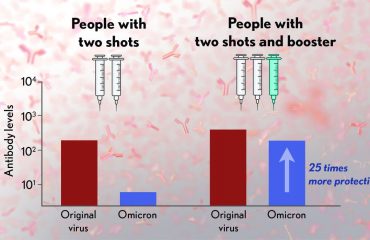Studies have shown that high blood pressure (BP) among children and adolescents is relatively common, although only a few have been conducted in Africa. Scientists from the Mwanza Intervention Trials Unit (MITU) recently published a report in the journal of Scientific Report – Nature which shows that adolescents with high BP in Tanzania can be identified in school settings and linked to routine health care services. This study was conducted in 2018 among 500 students aged between 11-15 years from three public secondary schools within Mwanza city.

Introducing the study to the students in one of the participating schools

Introducing the study to the student’s parents/guardians and requesting for their consent
Dr Mussa Kelvin Nsanya – a researcher at MITU and the study lead author – said that, “Adolescents with high BP in Africa can be identified using multiple BP measurements taken at multiple steps in a span of days to months followed by a 24-hour BP monitoring for confirmation. In addition, schools could save as an effective platform for screening of high BP and raising awareness to cardiovascular diseases”.

Taking BP measurements from one of the study participants in a secure and quiet improvised cubicle at a school setting.
Findings from this study showed that 50 out of 500 adolescents (10%) had sustained high BP on repeating BP measurements at three different occasions. Using BP measurements taken over 24 hours, investigators of this study confirmed that 13 (2.6%) adolescents had high BP. MITU scientists are continuing to follow-up participants enrolled in this study in order to identify those with high BP and examine factors related to long-term changes in BP measurements.






